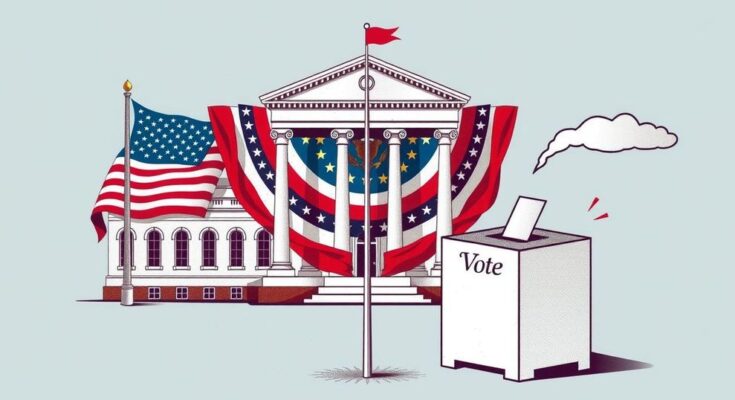The 2024 presidential election has marked a historic moment, reflecting not only unprecedented political events but also the pivotal role of the First Amendment. As alternative media has emerged to challenge traditional outlets, the necessity for robust protections of free speech has become paramount, ensuring diverse perspectives thrive in a rapidly evolving information landscape.
The 2024 presidential election stands as a significant landmark, not only for its unprecedented political events but also for its implications on the First Amendment. For only the second time in history, a candidate has won a non-consecutive term, amidst tumultuous events including assassination attempts and unprecedented campaign expenditures. The election served as a turning point highlighting the crucial role of First Amendment protections against a backdrop of rapidly evolving media dynamics.
In a climate dictated by rapid information dissemination, alternative media has emerged as a formidable force, reshaping how Americans consume news. The rise of podcasts, citizen journalism, and independent news platforms has made traditional media outlets less dominant in shaping public opinion. This transformation underscores the significance of the First Amendment, which facilitates a thriving ecosystem of diverse opinions and discourse. Unlike past eras, where narratives were primarily controlled by major media conglomerates, citizens today wield the power to share their voices widely and independently.
This newfound freedom is reminiscent of historical changes ushered in by the printing press. The stark contrast between traditional media and today’s digital landscapes became evident during the recent election, as strategic appearances on platforms like podcasts proved impactful for candidates. Such instances reinforce the premise that it is the First Amendment, which fuels innovation and communication in the digital age, supporting an environment where varied viewpoints can flourish.
However, this freedom poses challenges as well; it can lead to the proliferation of misinformation and conspiracy theories, generating concern among traditional stakeholders and governmental authorities. Despite these challenges, the principles of free speech remain essential to maintaining a robust democracy. The words of Voltaire resonate powerfully: “I may not agree with what you have to say, but I will defend to the death your right to say it.” This principle highlights the enduring importance of the First Amendment in securing a platform for all voices, even those of dissent.
Over the course of 233 years since the ratification of the First Amendment, the necessity for its protections has only intensified. Regardless of political affiliation, it is clear that the 2024 election illustrated our collective role in shaping public discourse in the 21st century. As long as First Amendment rights are upheld, the era of centralized media narratives is fading, allowing for a more democratized exchange of ideas. Thus, it remains paramount that we actively defend the freedoms that have enabled this vibrant media landscape.
The First Amendment of the United States Constitution, ratified in 1791, guarantees the freedoms of speech, press, religion, assembly, and petition. Its significance has grown amidst advancements in technology and shifts in media consumption. Recent elections have showcased how these evolving dynamics provide new platforms for expression but also raise concerns about misinformation and the integrity of discourse.
In conclusion, the developments of the 2024 presidential election illuminate the vital role of First Amendment protections in our society. As traditional media structures wane in influence, the emergence of alternative media highlights the necessity of safeguarding free speech. The freedom to express diverse opinions fosters an engaged democratic society, making it imperative to uphold and protect these rights against the complexities of modern communication challenges.
Original Source: thenevadaglobe.com




